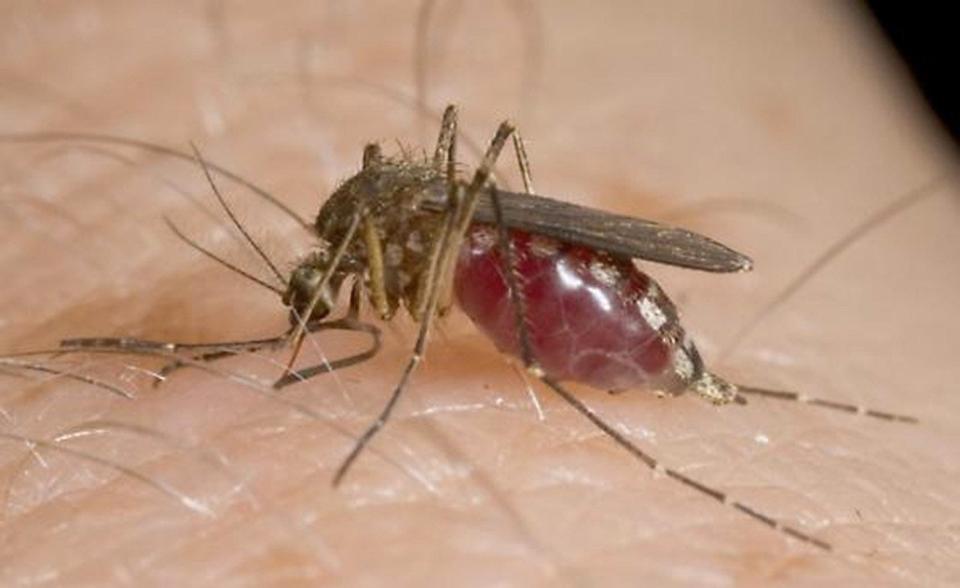West Nile Virus was found in mosquitoes in Fall River. Protect yourself with these 5 tips.
FALL RIVER — West Nile Virus has been detected in mosquitoes collected in Fall River, according to the state Department of Public Health.
The DPH did not report the mosquito-borne illness was found in humans — only in mosquitoes collected as part of virus-tracking efforts.
West Nile Virus is most commonly spread by the bite of infected mosquitoes. The virus can cause illness ranging from a mild fever to more serious disease like encephalitis or meningitis. About 80% of people who become infected will experience no symptoms; those who develop symptoms may experience fever, headache, body aches, nausea, vomiting, rashes or swollen lymph glands.
Less than 1% of people infected develop severe illness, with symptoms including a high fever, neck stiffness, stupor, coma, convulsions, vision loss, numbness and paralysis. Those older than 50 are at higher risk of developing severe illness.
There are no vaccines protecting against West Nile in humans, and no specific treatments for symptoms. The best protection is to avoid being bitten by mosquitoes.

Real estate report: A buyer paid $1.9M for this Tiverton property with views of the bay and river
Bring your appetite: Missing Link food trailer opens in Dartmouth — here's what's on the menu
Tips for mosquito-proofing yourself
Wear insect repellent outdoors: Use a spray with DEET, permethrin, picaridin, IR3535 or oil of lemon eucalyptus according to the instructions on the product label. DEET products should not be used on infants under two months of age and should be used in concentrations of 30% or less on older children. Oil of lemon eucalyptus should not be used on children younger than 3. Permethrin products are intended for use on clothing, shoes, bed nets and camping gear, and should not be applied to skin.
Cover your skin: Wear long sleeves, long pants and socks outdoors.
Beware feeding time: Peak biting time for many mosquitoes is from dusk to dawn. Curb your outdoor activities in evening or early morning, or cover up and wear insect repellant.
Drain standing water: Many mosquitoes lay their eggs in standing water. Check your home for items that hold rainwater and drain them, including gutters, flowerpots, wading pools and birdbaths.
Keep mosquitoes outside: Make sure windows and doors have tight-fitting, intact screens.
Information about WNV and reports of current and historical WNV virus activity in Massachusetts can be found on the MDPH website at mass.gov/dph/mosquito.
This article originally appeared on The Herald News: West Nile Virus found in Fall River mosquitoes: 5 tips for protection

